The end of press freedom in Turkey
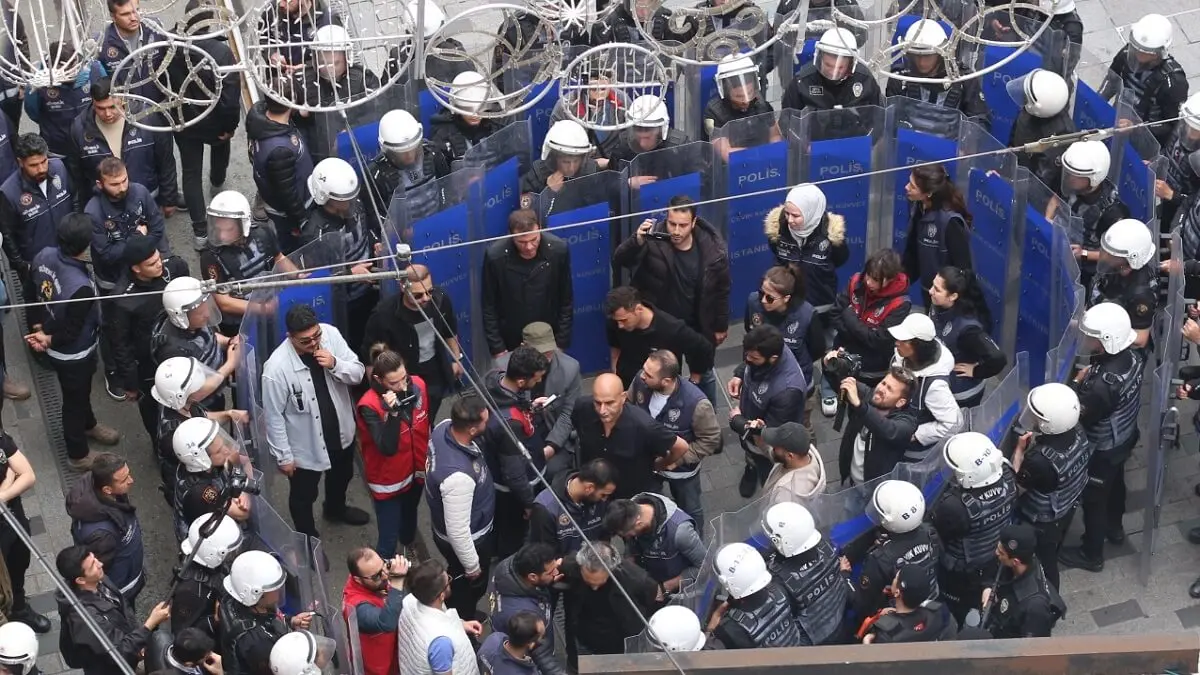
On 14 May, 85 million Turks voted in what was supposed to be the most important election of the year, as well as one of the most important in Turkish history due to the high possibility that Recep Tayyip Erdogan would lose power after 21 years in office.
There were, and still are, many reasons why a large part of the population begged for an end to the era of the 'Strongman of Turkey': the level of inflation that reaches -and exceeds- 100% according to independent experts, the devaluation of the lira that has reached historic lows, the concentration of powers in the figure of the president -after the 2017 referendum that turned the country into a presidentialist regime-, the abolition of social rights for vulnerable groups or the mismanagement of the earthquake, among other things. But, although the list of reasons to end the Justice and Development Party (AKP) leader's grip on power was long, voters once again gave him victory with 49% of the support.
With this result there is supposed to be a second round, scheduled for 28 May, but Erdogan's victory is already assumed. And this victory, among all the consequences already listed, has another one which will plunge the country into ever deeper censorship, as Erdogan has been doing progressively since he came to power.
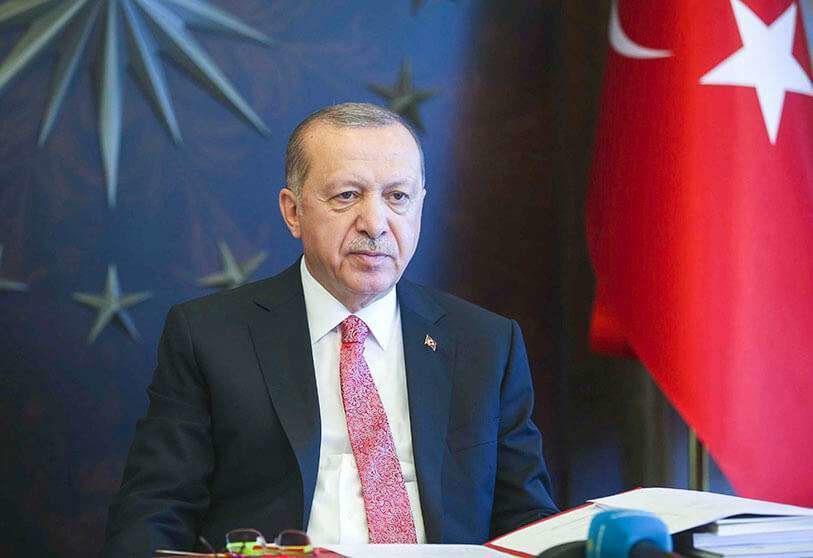
Just three weeks before the elections, hundreds of journalists were arrested in an operation that the state described as "anti-terrorist". Reporters Without Borders ranks Turkey 165th out of 180 on its press freedom list. Mumtaz Murat Kok is project coordinator of the Istanbul-based Media and Law Studies Association (MLSA), an organisation that has been following the legal proceedings of those journalists - and other professionals - prosecuted for exercising their profession for six years. He explains to me that "it is important to know that the press has never been free in Turkey because since the establishment of the Republic it has been under strict control".
This year marks the 100th anniversary of the establishment of the Republic of Turkey - in 1923 - which marked a change in the country's regime away from Ottoman precepts and towards the Republic established by Mustafa Kemal Atatürk. Moreover, in 2005, the country began its path towards EU membership, "with the EU process, the media started to become more pluralistic and there was less pressure on the freedoms of press and expression", explains the young man. A path that was interrupted in 2018, "due to continued backsliding on reforms in key areas of the enlargement strategy, in particular in the functioning of the democratic system, respect for fundamental rights and the independence of the judiciary", recites the European Commission's decision in this regard.
"In Turkey, after the coup attempt in 2016 there were more than 140 journalists in prison, but they were either released or eventually acquitted. Now again, we see that the number of information professionals in prison is increasing," explains Murat. According to the association he works for, there are currently 67 journalists in prison, but if we consult the Turkish Journalists' Association, the figure is 48, and if we go to the Committee for the Protection of Journalists, it drops to 33. "The problem with this is that in Turkey there is no agreement, so to speak, on what a journalist is," the expert points out.
Reporters Without Borders already warned in its report that 90% of the national media are in the hands of the government, something that could be seen during last Sunday's elections; the vote count varied when the figures were consulted in national and independent media.
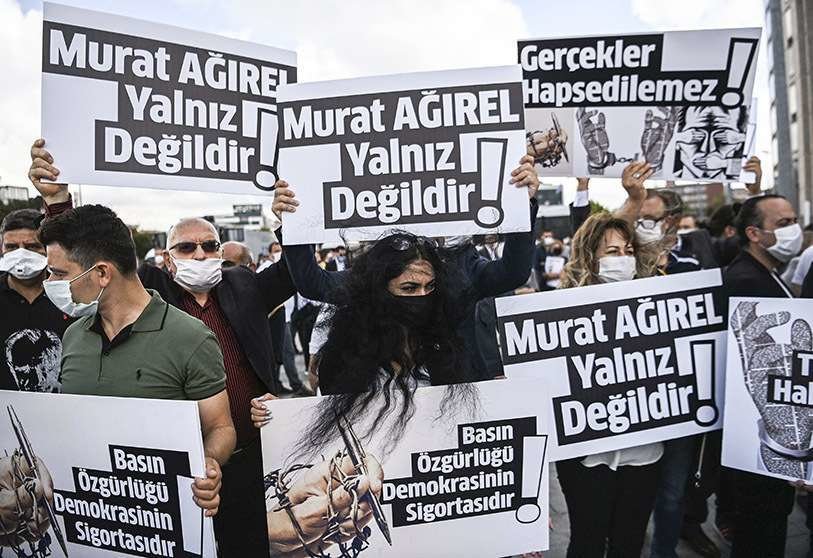
The AKP government with Erdogan at its head has long since taken the direction of autocracy, which has put media pluralism in a very delicate situation. Anti-government media experts have been subjected to legal proceedings, harassment campaigns against them and even prison sentences. An example of this was the imprisonment of Diren Yurtsever, editor of the pro-Kurdish news agency Mezopotamya (MA) last year, along with ten other journalists. According to the Committee to Protect Journalists (CPJ), "the motive for the mass arrest remains unclear, but lawyers representing the journalists said they have all denied any connection to a terrorist group".
According to the MLSA, 53.9% of the charges applied in the court cases it has followed were for 'propagandising for a terrorist organisation' and 39.1% for belonging to one. "In reality, this concept is always difficult to explain to European partners or European journalists, because in Europe, I think, there are very common aspects when it comes to terrorist organisations. But in Turkey they are not defined, there are many terrorist organisations. The latest one is Fethullah Gülen". The Fethullah Gülen, also known as FETÖ, an ultra-conversational movement and former ally of Erdogan who helped him come to power until Erdogan accused them of the coup d'état in 2016, labelling it a terrorist organisation.
"Last month alone six journalists were arrested in Ankara, almost all of them Kurds. And when you look at the accusations, they are the same as they were 60 years ago," says Murat. The Kurdish issue has been at the heart of both the programmes of the parties competing in the election race and the campaign. Erdogan's anti-Kurdish tone has also increased, and he tends to accuse any media professional or activist who speaks out for the rights of this minority of "promoting or collaborating with the PKK". This happened to Kadri Esen, editor of the Kurdish newspaper Xwebun, last month. Along with Esen, Osman Akın, news editor of the pro-Kurdish daily Yeni Yaşam, and Beritan Canözer, a reporter for the pro-Kurdish women's news website JINNEWS, among others, were arrested. All of them were accused of links to the PKK and the charges are still pending.
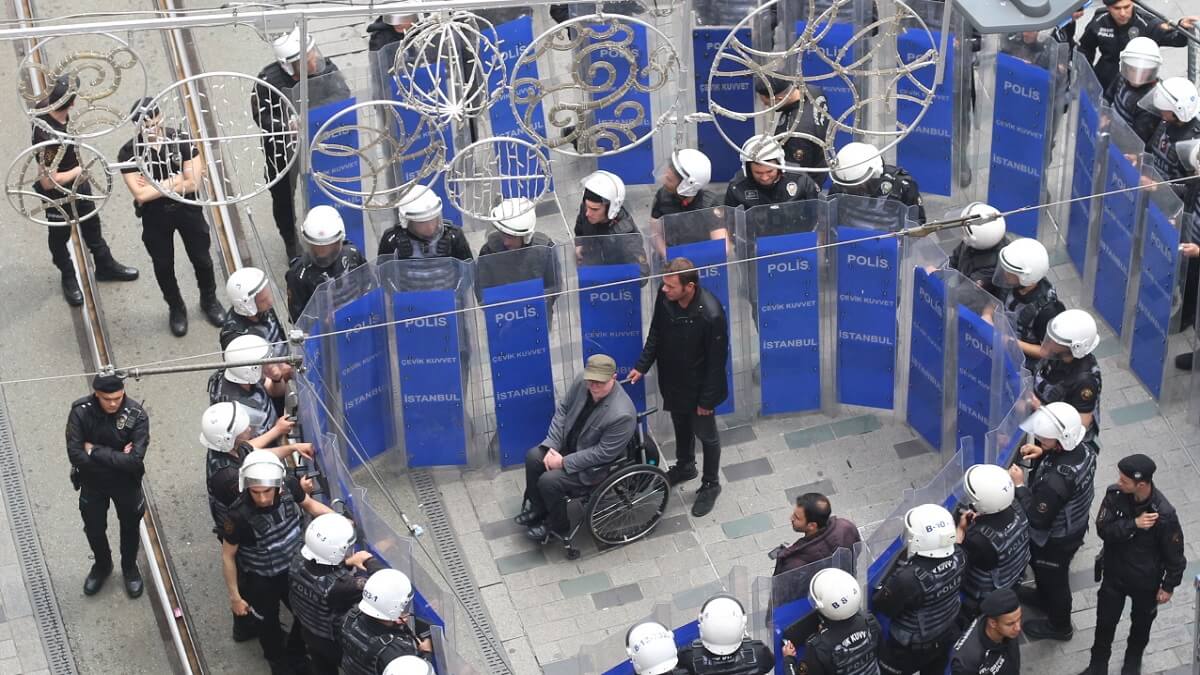
The Kurdistan Workers' Party, better known as PKK, is an organisation recognised as a terrorist organisation by Turkey and the European Union. The group focuses on the struggle for the independence of Kurdistan and the self-determination of minorities in Kurdish-majority areas on a democratic confederalist model. The state tends to label the leading voices of the Kurdish people as part of this organisation despite having no proof of this alleged connection; as was the imprisonment of Selahattin Demirtaş, leader of the Peoples' Democratic Party (HDP), whose release has already been demanded by the Strasbourg Court.
The activist informs me that Kurdish journalists [or activists] are the most persecuted because "they report on topics that are not acceptable to a majority in Turkey. For example, it is presented as a crime to talk about prison conditions, but it is a human rights issue. Without going any further, author and poet Meral Şimşek is facing charges as a "member of a terrorist organisation" for her poems which she shared on social media, numerous writings found on her computer and awards in which congratulatory messages were written in Kurdish. Writings that were used as evidence during the trial. Of all the prosecutions tracked by the MLSA, in more than half of them, social media posts were the evidence used to incriminate the defendants as 'members of a terrorist organisation'. "It is much worse than a publication on social media; during the EU membership process, Turkish law was amended to prevent the misuse of confidential witnesses, but in the last four or five investigations in which 33 journalists were arrested, all the accusations came from confidential witnesses," says Murat.
Incrimination, arrest or convictions are not the only mechanisms used by Turkish institutions to silence those who tell what they do not want to be told. Defamation campaigns, not only against the work of these professionals, but also against their private lives, are other strategies used to intimidate them. Sedef Kabaş, a journalist with a long career behind her, was arrested in 2022 for insulting Erdogan. An arrest that was followed by a huge discrediting campaign against her. "The same day she was arrested, a rumour started circulating that she was in a hotel room with a man who was not her husband," Murat tells me. "They tried to discredit her through these questions of femininity".
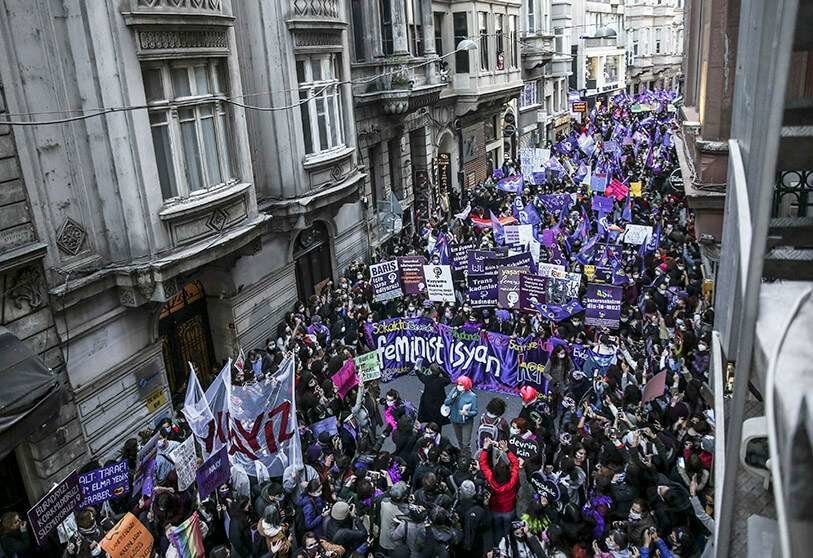
With all this, it is logical to question the kind of information that reaches the population. As has already been said, 90% of the media belong to the government, and attempts at independent media are not only attacked or banned, but are also subject to fines. The only possibility these independent platforms have is the use of social media and even then, they are "censored".
In a study carried out by the independent news agency Bianet, the degeneration of the situation of media and professionals from 2015 to the present day was denounced. Furthermore, in a report where they bring to light the treatment of the media prior to the elections, the website denounced "arbitrary bans on access to publications and posts by journalists who bring agenda items, and discuss issues such as irregularities and cases of corruption in the wake of the earthquakes prior to the elections on 14 May".
Murat is clear that "this time censorship killed people", in reference to the earthquake that devastated the southern part of the country last February. "People were tweeting from under the rubble. They were recording TikTok videos explaining their location. But a couple of hours after the earthquake, the government decided to restrict access to social media platforms like TikTok and Twitter, all these messages stopped, and the rescue teams couldn't reach those places," the activist says. As Bianet also reports, "the bandwidth throttling implemented on the internet service after the earthquake caused suffering to both journalists and earthquake victims".
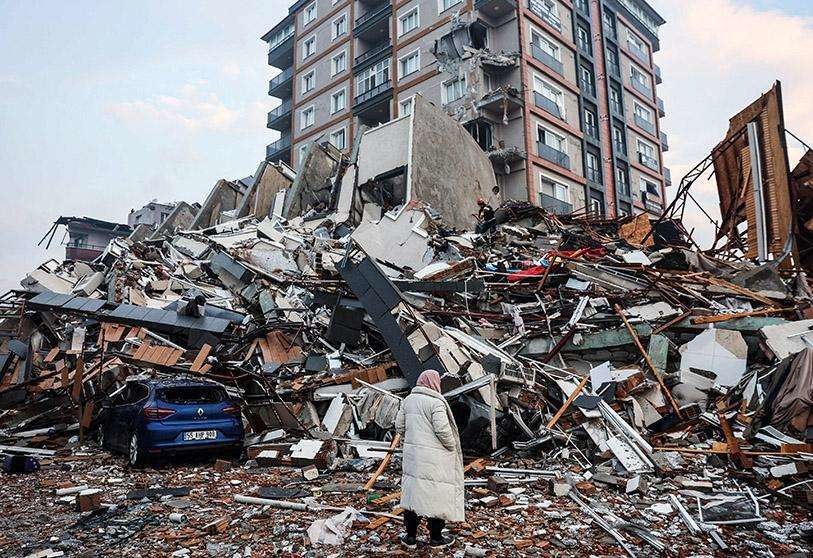
Turkey managed to justify the blocking of access through Law No. 5651 on the Regulation of Internet Publications and Suppression of Crimes Committed through Such Publications, which came into force in 2007. Due to this, the number of blocked platforms or spaces increased to a total of approximately 467,000 by the end of 2020. This figure includes publications such as Deutsche Welle. Freedom House has been calling Turkey "not free" since 2013. Reporters Without Borders keeps downgrading Turkey in its annual reports. The number of imprisoned journalists is 40, according to the Committee to Protect Journalists, a figure that rises to 67 if we consult the data of the MLSA.
Mumtaz Murat was taken to the police station and held for hours last week for observing protests by the Saturday Mothers, a group of protesters inspired by the Mothers of the Plaza de Mayo who have been meeting every Saturday since 1995, calling for their relatives who disappeared during the 1990s in Turkey. I ask him if he is not afraid that something might happen to him, and he assures me that "I'm not that important. I'm at the bottom of the list of people they're worried about".
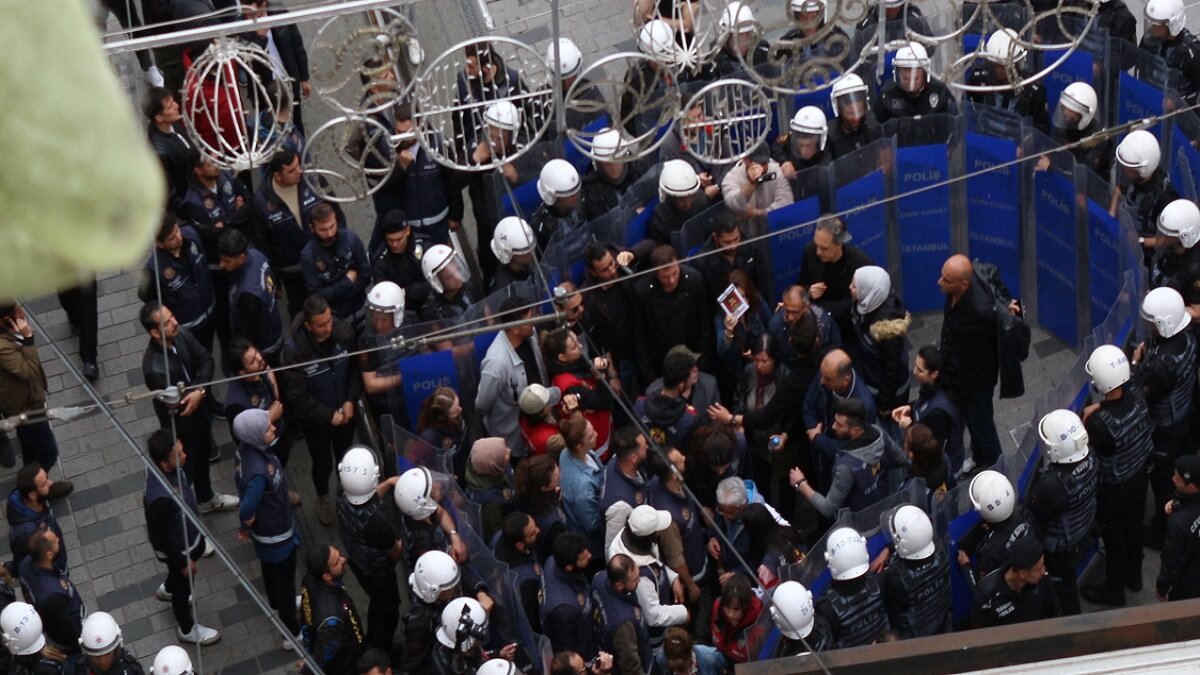
The following week I go with them [human rights observers] to the Saturday Mothers' rally: protesters, journalists and activists prepare to be arrested. "We have never seen so many police forces," they say, surprised, knowing that something is going to happen. Dozens of police and riot police are organised in Galatasaray square; buses are parked knowing that there will be arrests. After less than ten minutes of reading the manifesto, the riot police have already surrounded the 18 protesters and are handcuffing them and putting them in the police bus. Özlem Zıngı, a human rights lawyer who came to the demonstration as an observer from the NGO Centre for Memory, Justice and Truth (Hakika Adalt Hafiza Merkezi, in Turkish), just before leaving with the detainees to assist them during the arrest tells me "all this that you have seen was nothing but a demonstration of the use of force". The demonstration took place five days after the election result that practically gave Erdogan the victory, "they want to make clear what is coming". After this last sentence Zıngı leaves together with the protesters, activists and journalists who have just been arrested in the middle of Galatasaray square while tourists were following their route without even being aware of the violation of human rights that had just taken place next to them.








